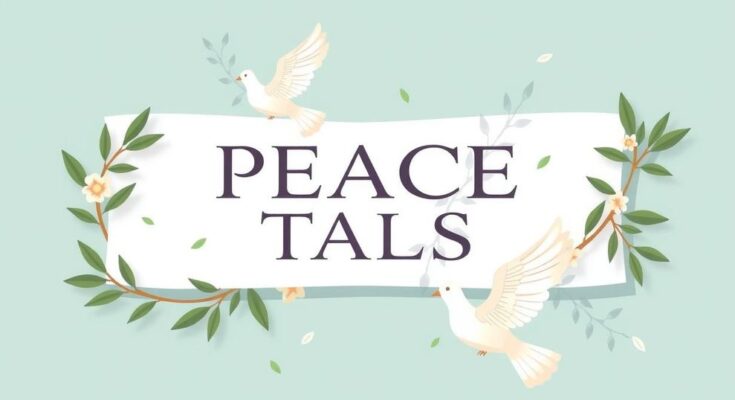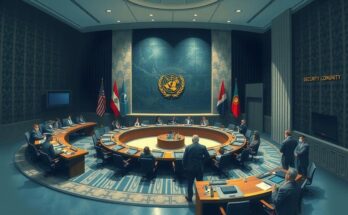The M23 rebel group is sending a delegation to Luanda for peace negotiations with the DR Congo government on March 18. This follows a call from Angolan President João Lourenço for dialogue after prior refusals from President Tshisekedi. The talks will be the first direct engagement since the conflict began in 2021, with allegations of ethnic violence and governance issues central to the discussions.
The M23 rebel group has formally announced the dispatch of a five-member delegation to Luanda, Angola, aimed at engaging in direct peace negotiations with the government of the Democratic Republic of Congo (DR Congo) scheduled for March 18. M23 spokesperson Lawrence Kanyuka confirmed the representatives will depart for Luanda on the previous day. Angolan President João Lourenço initiated these direct peace talks following discussions with DR Congo President Felix Tshisekedi on March 11.
Bertrand Bisimwa, the political leader of M23, received an invitation for dialogue from President Lourenço on March 13, reflecting the seriousness of the upcoming discussions. Reports indicate that Congolese Deputy Prime Minister Jean Pierre Bemba will lead the government’s delegation at the Luanda talks, marking a notable first step in addressing the longstanding conflict that has persisted since November 2021.
The negotiations are particularly significant as President Tshisekedi has historically resisted engaging directly with the M23 rebels, who belong to the Alliance Fleuve Congo (AFC). “The AFC/M23 reiterates its deep gratitude to President João Lourenço of the Republic of Angola for his tireless efforts towards a peaceful resolution of the ongoing conflict in the DRC,” stated Kanyuka. M23 has long accused the Congolese government of backing militias committing ethnic violence against Congolese Tutsi communities.
The FDLR, a group implicated in past genocidal actions during the 1994 Rwanda Genocide, has reportedly allied with the Congolese army, adding to the tension. The M23 rebels, who advocate for the protection of Tutsi communities, resumed military actions in 2021, capturing significant territories, including Goma in January and Bukavu in February.
Since mid-2022, President Lourenço has acted as a mediator in the Luanda Peace Process; however, an attempt to improve relations between Rwanda and DR Congo faltered in December 2024, following the Congolese government’s refusal to sign a crucial agreement intended to facilitate negotiations with M23.
The planned peace talks in Luanda represent a critical opportunity for reconciliation between the M23 rebels and the DR Congo government. With Angola’s President Lourenço facilitating discussions, this dialogue aims to address the underlying issues of ethnic violence and governance challenges in the region. The outcome of these negotiations may significantly influence the stability and future governance of the Democratic Republic of Congo.
Original Source: www.newtimes.co.rw




